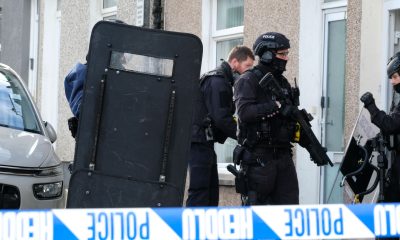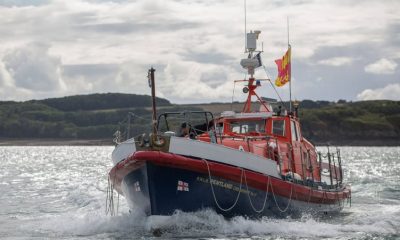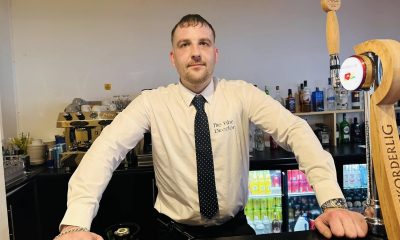News
BBC Wales investigation uncovers potential new evidence in Clydach Murders case
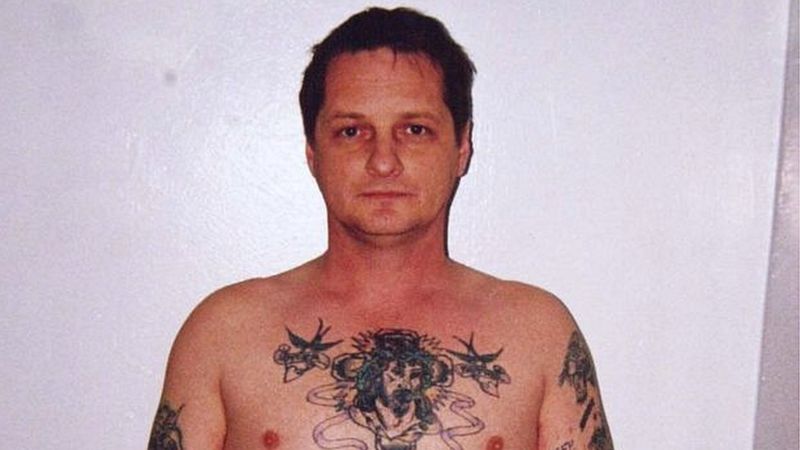
A BBC WALES investigation has uncovered potential new evidence casting doubt over the guilt of a man for the horrific murders of three generations of one family 21-years-ago.
In a powerful one-hour documentary made by the BBC Wales Investigates team, later tonight on BBC One Wales at 9pm and then on BBC iPlayer, reporter Wyre Davies explores whether the conviction of David Morris for one of Wales’ most shocking crimes could be a miscarriage of justice.
Mandy Power, her elderly mother and two young daughters were brutally bludgeoned to death with a metal pole coated in fibre glass at their home in Kelvin Road, Clydach, near Swansea in the summer of 1999. It led to South Wales Police’s largest ever murder inquiry.
Seven years after the murders, local labourer Morris was sentenced to four life prison terms at Newport Crown Court in 2006, later to be reduced to 32 years, after being found guilty of the mass murders.
A year earlier his conviction from a previous trial at Swansea Crown Court in 2002 had been quashed in the Court of Appeal but he was soon to be convicted again.
The brutal murders had sent shockwaves through the close-knit Welsh community in the summer of 1999 and it soon emerged 34-year-old Mandy Power had been involved in a serious love affair with former police officer Alison Lewis at the time she was killed.
Alison Lewis was married and living with her husband – South Wales Police Sergeant Stephen Lewis – when the murders occurred sometime between June 26th and the early hours of June 27th in 1999.
In a twist to the tragic events, Stephen’s twin brother Stuart, an acting inspector with the force at the time, was the most senior officer to arrive at the crime scene that morning.
All three of the Lewis’s quickly became suspects in connection with the murders and just over a year later – in July 2000 – Alison and Stephen Lewis were arrested on suspicion of murder and Stuart Lewis was arrested on the suspicion of perverting the course of justice.
They were questioned but weren’t charged as the Crown Prosecution Service said there was insufficient evidence. All three maintained they were innocent of any involvement.
The focus of the police investigation then sharply turned to Morris after police linked him to a gold chain left at the murder scene, which he admitted was his just weeks before his first trial. He was arrested in March 2001, questioned and charged with the horrific killings in the same month.
However, a new eyewitness account from the night questions whether South Wales Police missed investigating potentially important information during their original inquiries.
Tonight’s programme will hear from a taxi driver, Mike, who claims to have seen twin brothers Stephen and Stuart Lewis walking along Vardre Road minutes away from the crime scene in Kelvin Road after 2am.
“There were two blokes walking towards me on the pavement next to the taxi my side,” Mike said.
“And what struck me was they were very, very similar. Both dark hair, cropped. Very, very similar features.”
Mike says that after seeing their photos in local press coverage he was “100% convinced” the two men he saw were the Lewis brothers. He was working as a taxi driver for a local firm on the night of the murders. He said he contacted police twice about the sightings but says his calls and information he gave to police were never followed up.
Stephen Lewis issued a statement, saying any witnesses who suggest he was in Clydach on the night were mistaken as he was at home all night.
Stuart Lewis has said he did not see either Alison or his twin Stephen that night and was on general patrol when the killings took place; while Alison has said she was at home in bed with her husband, Stephen.
BBC Wales now understands Mike has given his statement to the police, who are investigating.
Wyre Davies also talks to another potential eyewitness in the programme.
John Allen claims to have seen a man carrying a green coloured “kit bag” under his arm near to the crime scene as he drove as a disqualified driver in country lanes in the early hours of the morning with three others.
He says he regrets not informing police at the time but has come forward now.
“I seen him perfectly. Standing there in the middle of the road. When I come round the corner I had to slam on or I would have hit him cause he was practically on my bonnet,” Mr Allen said.
Mr Allen did not report what he saw to the police at the time, and admits that he was driving while disqualified, but says he has now come forward as it’s “been on his mind” for 20 years, and he wants justice.
Another witness who actually gave evidence at David Morris’ trials, also claims to have seen a man carrying a bundle that night near to Kelvin Road.
Nicola Williams reported what she saw to police, provided an e-fit and later identified the man as Stephen Lewis at a video ID parade. At trial her evidence was disputed and it seems it didn’t cause the jury to doubt David Morris’ guilt.
Morris’ legal team believe the potential new sightings could be significant and their testimonials should be investigated by police and the Criminal Cases Review Commission.
Solicitor Maslen Merchant said: “It’s very, very interesting the accounts that they’ve given.
“It’s interesting that they describe events and seeing the same individual – or possibly one of two individuals – around that area at exactly the right time.
“Potentially, new witnesses could provide Dai with a ground of appeal; new “witnesses could get these convictions quashed.
Morris, who has spent more than 19 years in prison for the crime, has always protested his innocence.
His DNA and fingerprints were never discovered at the crime scene in Kelvin Road where he was said to have started four fires to destroy the house after brutally beating his victims to death.
The most incriminating evidence against Morris was the gold chain found at the crime scene which he lied was his until weeks before his first trial.
Winchester University lecturer Brian Thornton has been investigating the murders for more than 10 years from the Crime and Research Centre he set up at the university. He gave BBC Wales access to the original court files housed in a bunker at the university containing thousands of documents and exhibits from the case to investigate.
Professor Thornton said the potential new evidence could prove significant and hopefully provide a breakthrough in terms of getting the case reviewed and back to the Court of Appeal. They plan to include the potential new evidence in a fresh application to the Criminal Cases Review Commission (CCRC).
“The threshold that you have to pass is you have to establish that there is fresh evidence, new evidence, essentially evidence that the jury never heard.
“And this new evidence is going to be right at the heart of the fresh application,” Brian Thornton said.
Morris’ defence team also believe the key to potentially proving his innocence could still lie in the forensics, despite their client’s DNA never being discovered at the scene.
Forensic scientist Joanne Millington has been looking at the case again with fresh eyes.
In the programme she argues there were shortcomings in the original DNA testing of the murder weapon as well as a blood-soaked sock thought to be used as a glove by the killer and both found at the crime scene. Her findings will be included in the new application to be submitted to the CCRC.
Ms Millington says it is already known that an unidentified partial male DNA trace was detected on the murder weapon that isn’t a match to an elimination sample provided by Morris.
“We have an elimination sample from him to compare directly and it doesn’t match his profile,” she said.
Wyre Davies also traces the steps of Morris on the night of the murders and examines the potential sequence of who was killed at the victims’ home in Kelvin Road.
Also appearing in the programme is barrister Simon McKay who has expertise in disclosure and high-profile cases around terrorism and security.
After looking again at disclosure details in both of Morris’s trials, he raises concerns that too many documents were withheld from the defence under the legal umbrella of Public Interest Immunity (PII). The type of documents normally held back as PII are usually only those seen as important for protecting government and public security as well as covert police intelligence.
Mr McKay said: “This case certainly has a significant volume of material which was subject to a series of public interest immunity applications and there is not an obvious reason why you would expect that to arise.
“When one looks at the entire context of the case … then it’s understandable that one walks away from this case with serious concerns that justice has been done.”
The 21-year-old murder case has been back in the spotlight following a campaign set up by Morris’s family.
An online Facebook page aimed at freeing him now has more than 22,000 members. Before lockdown, meetings were held regularly in Swansea to rally support.
Supporters who believe there has been a miscarriage of justice wear or decorate their cars or house with yellow or green garlands and bows.
Morris’ sister Debra Thomas has always protested her brother’s innocence and says she hopes the programme will convince other potential witnesses to come forward with information.
Two attempts to convince the review body to take a fresh look at the case have so far failed, the latest in 2018.
South Wales Police says it undertook an extensive investigation; Morris has twice been convicted by a jury and they await the content of the programme with interest.
The victims’ families – the Dawson and Power families – both issued statements earlier this week, saying they believe the right man was behind bars for the killings.
The Clydach Murders: Beyond Reasonable Doubt airs on BBC One Wales tonight (Thursday) at 9pm; and will be available on BBC iPlayer.
Crime
Prolific west Wales rogue trader sent back to prison for six years
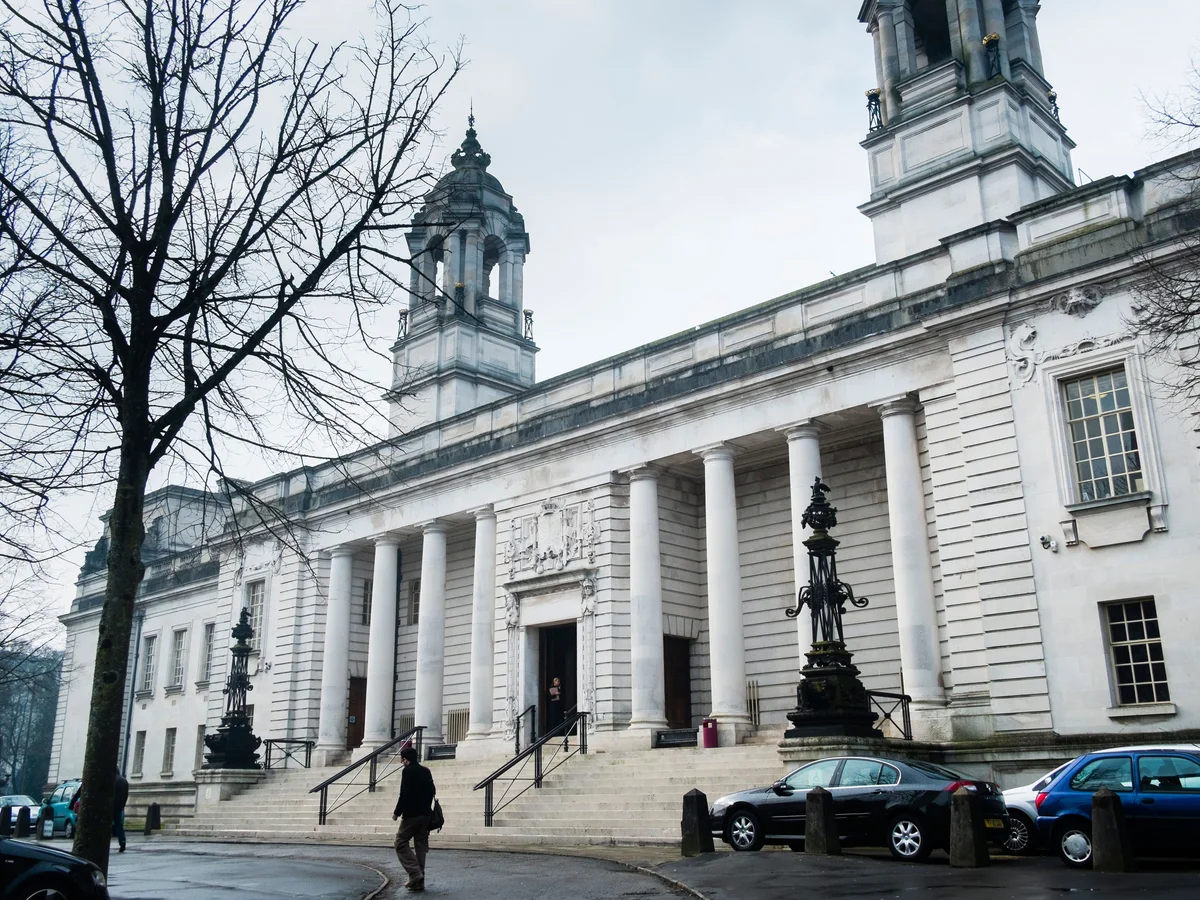
LEE SLOCOMBE, 33, previously of Delhi Street, Swansea has been sent back to prison for six years for a £400,000 fraud against nine victims, following dangerous building work he carried out at properties in Cardiff, Bridgend and Swansea.
The total loss to his victims was calculated at least £547,000, after considering the costs incurred to rectify the dangerous work he carried out.
On 20th October 2025, Slocombe pleaded guilty to two charges of participating in a fraudulent business between March 2021 and May 2023. One charge was brought directly against him, with a further charge against his company, LSP Developments. Slocombe was on Crown Court bail when these offences were committed.
In sentencing, on 11th February 2026 Cardiff Crown Court heard that Slocombe targeted nine people seeking work to be carried out at their properties, ranging from rendering a shed to building a two‑storey extension. The work was completed to an appalling standard, with Slocombe often convincing his victims that work was required when it was not. He frequently left work incomplete, leaving victims with significant restoration bills.
His actions caused significant financial hardship to his victims, who were forced to take out loans and overdrafts and, in some instances, withdraw money from their pension pots to rectify the poor‑quality work he had carried out. Some of the victims were elderly and vulnerable.
The court heard that Slocombe has previous convictions for fraud dating from 2015 to 2023, during which time he was sent to prison on two occasions. In 2015, he was jailed for 43 months for three offences of fraud, and in 2023 he received a sentence of five years and five months after defrauding seven families of £150,000 through similar sub‑standard building work.
Slocombe was made subject to a Criminal Behaviour Order, banning him from carrying out building, maintenance or gardening work in the UK for life. He was also disqualified from being a company director until 2031.
Given his previous dishonesty, Slocombe used a false name when dealing with customers, calling himself Lee Lewis, to prevent them from discovering his previous convictions for similar offences.
At Cardiff Crown Court, His Honour Judge Felstead described Slocombe as a persistent rogue builder who operated dishonestly. The judge said Slocombe falsely escalated costs and that any work he did carry out was to an “appalling standard”, with some homes being “virtually destroyed”.
In two cases, Slocombe brought a fake and unqualified gas engineer to carry out work at properties, leaving them in a “potentially lethal state”. In one instance, carbon monoxide leaked into a property where a 10‑month‑old child was living.
Cllr Norma Mackie, Cabinet Member responsible for Shared Regulatory Services at Cardiff Council, said: “Lee Slocombe caused immense misery to his victims, carrying out sub‑standard work and leaving some properties in such a state of disrepair that they were open to the elements, not watertight and simply dangerous. The stress he caused is unimaginable, and he deserves to be sent directly back to prison.
“I would like to thank all the staff who enabled us to bring this case to court. Hopefully, this outcome provides some closure for the victims, knowing that he is where he belongs – back behind bars.”
Education
School in special measures after inspectors raise safeguarding and leadership concerns

Estyn orders urgent action plan and regular monitoring at Pembroke secondary
A PEMBROKESHIRE secondary school has been placed into special measures after inspectors identified safeguarding concerns, weak leadership and inconsistent teaching standards.
Inspectors from Estyn, Wales’ education watchdog, concluded that Ysgol Harri Tudur/Henry Tudor School requires the highest level of intervention following an inspection in December 2025.
In its report, Estyn said that while leaders and staff “strive to provide pupils with a caring environment”, serious shortcomings mean too many pupils are not making enough progress and important aspects of the school’s work are not effective.
The watchdog formally stated that “special measures are required in relation to this school”, meaning the school must now produce an action plan and will be monitored by inspectors every four to six months.
Teaching and learning concerns
Inspectors found that progress across the school is inconsistent.
Around half of lessons were judged to support appropriate progress. However, in a similar proportion, weaknesses such as low expectations, poor planning, ineffective questioning and weak behaviour management were said to restrict learning.
Teachers were criticised in some cases for setting undemanding tasks that “keep pupils busy rather than challenging them to learn”, with pupils becoming passive and over-reliant on staff support.
A minority of pupils were also reported to disrupt lessons through defiant behaviour.
The report added that provision to develop literacy, numeracy, digital and Welsh language skills across subjects is underdeveloped, leaving pupils without enough meaningful opportunities to build core skills.
Safeguarding issues identified
Safeguarding was a key concern.
Although leaders were said to promote a culture of care and staff receive regular training, inspectors identified “several aspects of the school’s approach to safeguarding that raised concerns”.
Staff had not been given correct guidance on how to deal with allegations against members of staff, and there was insufficient information on recognising risks linked to radicalisation.
A minority of pupils who responded to surveys said they feel unsafe in school, while some told inspectors they are reluctant to report bullying because they feel it is not always dealt with effectively.
Estyn has made addressing safeguarding issues its first formal recommendation.
Attendance well below average
Attendance has also deteriorated.
The report said overall attendance has declined over the past three years and remains well below both similar schools and pre-pandemic levels.
Persistent absence rates are higher than average, and attendance among pupils eligible for free school meals is significantly worse than national comparisons.
Inspectors also found that attendance coding is sometimes inaccurate, meaning leaders do not always have a clear picture of the true situation.
Leadership and accountability criticised
Leadership and governance were judged to have had “little impact on several important aspects of the school’s work”.
Inspectors said self-evaluation and improvement planning lack rigour, and that leaders do not evaluate teaching precisely enough to drive improvement.
Staff are not held robustly accountable, and middle leaders are not sufficiently challenged or supported.
Governors were described as supportive but not consistently challenging enough on key issues such as teaching quality.
The school is also operating with a large budget deficit and does not yet have an agreed recovery plan.
Recommendations and next steps
Estyn has issued six recommendations, including:
- Address safeguarding issues
- Improve teaching quality
- Strengthen leadership and accountability
- Raise attendance
- Improve curriculum provision for key skills
Under special measures, the school must now produce a formal action plan showing how it will address these failings.
Estyn will revisit regularly to assess progress.
Special measures are the most serious category an inspection can apply and are only used when inspectors believe a school cannot improve quickly enough without external support and close monitoring.
Despite the concerns, inspectors did highlight some positives, including caring staff relationships, useful support for vulnerable pupils, a broad range of vocational courses, and worthwhile extra-curricular opportunities.
However, the overall judgement makes clear that significant improvement is needed.
The Herald has approached the school and Pembrokeshire County Council for comment.
Community
Young people shine at Pembrokeshire Spotlight Awards

YOUNG people from across the county were recognised for their courage, talent and community spirit at this year’s Pembrokeshire Spotlight Awards.
The fourth annual celebration, organised by Pembrokeshire Youth, the Children and Young People’s Rights Office and Pembrokeshire County Council Children’s Services, honours children and young people who achieve exceptional things and make a real difference in their communities.
Originally planned for November, the event was postponed due to severe weather but successfully went ahead on Thursday (Feb 6) at the Merlin Theatre, Pembrokeshire College, thanks to support from sponsors BAM Nuttall, Milford Haven Port Authority, Pure West Radio and Ascona Group.
Councillor Marc Tierney, Cabinet Member for Young People, Communities and the Wellbeing of Future Generations, praised those taking part.
He said: “It was a privilege to hear how our young people have triumphed within their own lives and within their communities. Huge thanks go to the organisers and sponsors who made this celebration possible.”
Chair of council Cllr Maureen Bowen added: “The evening was a joy to attend. It highlighted the incredible talent of Pembrokeshire’s young people and gave real hope for the future of the county.”
The ceremony opened with a video message from First Minister Eluned Morgan, who offered her congratulations despite being unable to attend in person.
Award winners
Among those recognised on the night were:
- Welsh Language – Emma Nicholas
- Fundraising – Ben Stanton (winner); Jack Gray and Milford Haven Youth Council (runners up)
- EcoChampion – Tomos Roberts
- Achieving Positive Change – Alfie Harper (winner); Amber Allerton and Thomas John
- Arts – Dawn Clark (winner); LillieMai Radcliffe and Kali Flux
- Education – Yuliia Bedyk and Andrii Volkov (joint winners); Courtney Waugh and Leo Credland
- Making a Difference in the Community – Off The Streets Youth Forum (winner); Megan Mathias, Kyra Mottram, Lexi Jenkins and Pembrokeshire Youth Assembly
- Most Inspiring Story – Kai Williams (winner); Carly Sharif, Caitlin Griffith and Berat Sahin
- Music – Dylan Harwood (winner); Toby Draper and the cast of Bugsy Malone 2025 – Ysgol Harri Tudur
- Sports – Samantha Barton (winner); Mary Falconer, Alannah Field and Destiny John
- Voice – Young Voices for Choices Youth Forum
- Young Leader/Peer Mentor – Caiden Meacham (winner); Amélie Houghton and Brooke Jenkins-McNamara
Overall Spotlight Award
The top honour went to the We Know Our Journey Youth Project, a collaboration between the You Should Know Girls Project and His Path His Journey Boys Project.
The group was recognised for promoting inclusion, challenging harmful attitudes and encouraging open conversations around violence against women and girls, domestic abuse and men’s mental health.
Members organised the countywide “Men Make It Safe” event and raised £1,600 for local mental health and domestic abuse charities through a sea swim and a 10k run involving 24 young participants.
Judges said the project demonstrated the powerful role young people can play in creating positive change.
Thanks and support
Organisers thanked presenters, nominators, performers and supporters, along with staff at Pembrokeshire College and event leads Nadine Farmer, Bethany Roberts, Nicky Edwards and Angie Moore. Businesses including National Grid, Princes Gate, Tan y Castell, Greggs and The Vine also backed the evening.
More information is available via the Children and Young People’s Rights Office social media pages.
-

 Health2 days ago
Health2 days agoHealth Board to decide future of nine key services at two-day meeting
-

 Business4 days ago
Business4 days agoComputer Solutions Wales under fire from customers
-

 Business7 days ago
Business7 days agoSix-figure negligence victory leaves retired builder trapped in divorce limbo
-

 Business6 days ago
Business6 days agoMinimum alcohol price to rise by 30 per cent as retailers warn of border impact
-
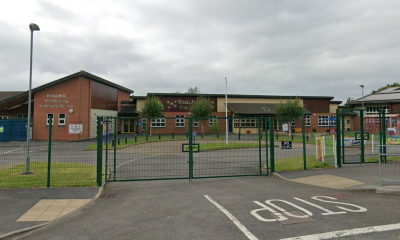
 Education7 days ago
Education7 days agoSecond west Wales school placed in lockdown within days
-

 Community3 days ago
Community3 days agoFacebook ‘news’ site targeting Herald editor collapses after community backlash
-

 Charity4 days ago
Charity4 days agoWelsh patient voices help shape new UK-wide online kidney forum
-

 Crime6 days ago
Crime6 days agoPembroke Dock man admits threatening to hack woman’s head off with sword













